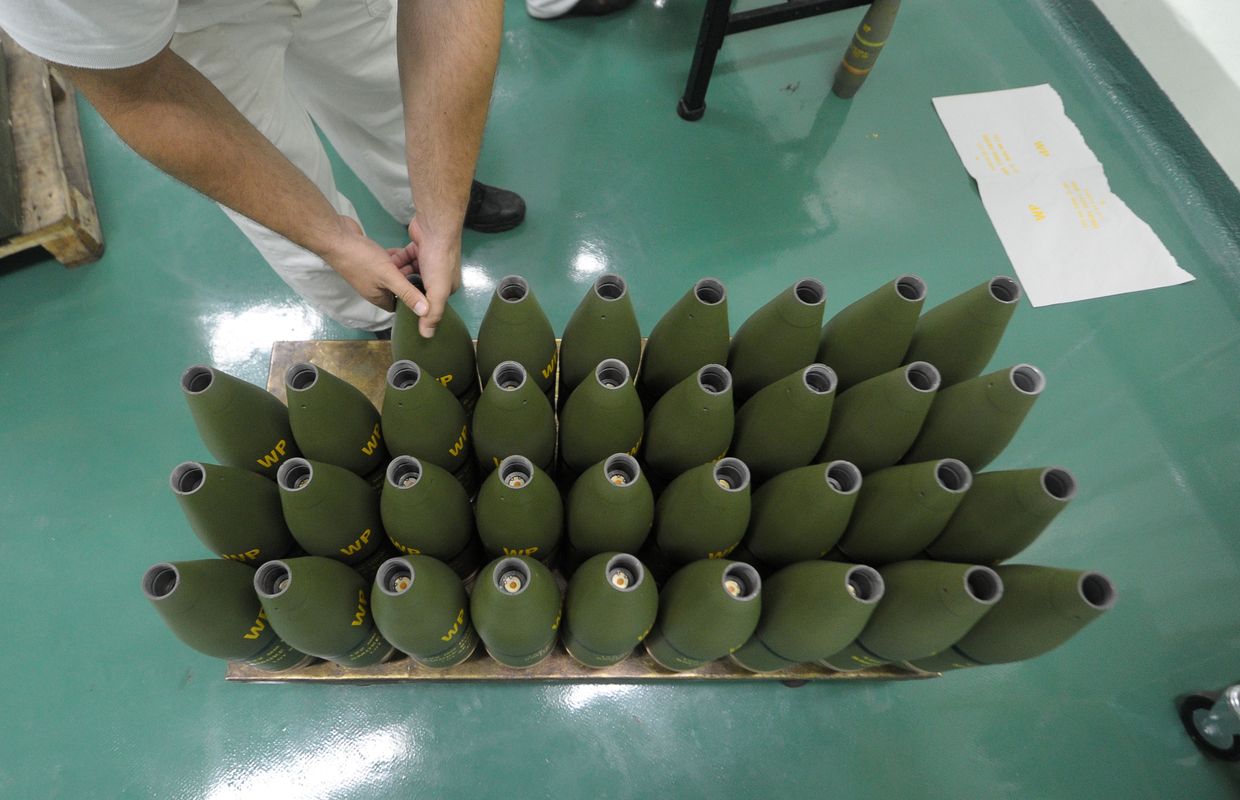‘Doha has been funding Hamas since long before 2006 through so-called charity groups,’ an activist told The Jerusalem Post, rejecting the Gulf country’s narrative
Israelis from Jerusalem and Tel Aviv woke up last week to posters and placards warning againstQatar adorning different parts of the major cities. The grassroots campaign focused on Qatar’s support for Hamas, ties to terror-endorsing figures such as Muslim Brotherhood leader Sheikh Youssef Qaradawi, and influence on US campuses, deeming the rich Gulf country a “terrorist state” and leading to social media accounts that claimed to “unmask Qatar.”
The Jerusalem Post managed to contact one member of the anonymous collective of activists to hear more about the campaign and its goals and plans for the future.
“Our mission is to expose Qatar’s toxic influence in Israel and the broader world,” they said. “Through posters, social media, and a strategic PR campaign, this is a coordinated effort to go behind the wealthy Gulf state's whitewashed image, which has been carefully crafted and artificially inflated."
They continued: “Our goal is to reduce Qatar’s influence in Israel while dismantling the false image its royal family has built through years of calculated public relations.” According to the activists, Qatar’s presence in Israel stretches across various sectors, from academia, where it offers scholarships to students, to media, where the Qatari prime minister is often given what they described as “undue legitimacy and stage presence.”
The campaign officially launched with the intention of alerting Israelis to what the organizers see as Qatar’s covert operations - “both soft and sinister. For years, we were taught that Iran is our main threat,” the source commented, “but nobody talked about Qatar, which funds terrorism with billions and promotes antisemitic narratives in the West.”
The campaign began with dozens of volunteers. “We hung thousands of posters and stickers in major cities and across university campuses. At the same time, we pushed concise, targeted content on social media.” The message was stark: Qatar is not a benign investor or neutral mediator; it is a “state sponsor of terror with long-standing ties to groups like Hamas,” they argued.
Challenging the Narrative
At the core of the campaign is the goal of disrupting what the organizers believe is Qatar’s global messaging strategy. “They hire the best PR firms in the world,” the source noted. “But anyone who digs a little deeper sees the distortions and outright lies. The question we keep asking is: Why does their prime minister keep showing up in our media? It’s because Israeli public opinion matters to them,” they added, referring to several interviews given by Qatari officials to Israeli outlets since the Israel-Hamas War began, including with the Post.
One activist said that one of the campaign’s strategic objectives is to hit Qatar where it hurts most - its international reputation. “They care deeply about their image. A dent in their brand could actually push them to act differently in order to preserve it.” This includes, they hope, increased pressure on Qatar to play a more meaningful and honest role in the hostage crisis involving the Gulf country’s protégé,Hamas.
According to the organizer, their ultimate goal is for Israel to pass legislation declaring Qatar an enemy state. “We can’t let a country that bankrolls terror have unfettered access to our businesses, our institutions, or our academic circles. Especially not when they serve as patrons of the Muslim Brotherhood and its armed offshoots.” Notably, a bill to designate Qatar as a terror state was approved by the Ministers' Legislation Committee last month, but no further actions have been registered since.
Asked about public response, the source said that reactions ranged from enthusiastic to skeptical. “A lot of people backed us and even shared our materials. Others questioned the novelty of our claims, saying things like, ‘We already know Qatar’s a problem.’”
But the campaigners believe this surface-level understanding isn't enough. “People don’t realize just how embedded Qatar has become. Just look at their involvement in Syria, where they’re now paying public salaries, just like they used to in Gaza. Or Egypt, where they recently eased tensions with [Abdel Fattah el-] Sisi through billion-dollar investments.”
Future steps
When asked about the next phases of the campaign, the activists said they plan to double down on local awareness before expanding internationally. “There are Qatari-linked academics here, a stadium named after Doha, and Israeli businesspeople who collaborate with them. These ties must be exposed.”
The campaigners are also preparing new content to combat what they view as dangerous misconceptions. “One common myth we’re tackling is that the US and Israel 'forced' Qatar to support Hamas. That’s simply not true. They were funding them long before 2006 through ‘charity’ channels controlled by the royal family.”
They also highlighted the issue of Qatar’s “interest-driven” mediation in the hostage crisis. “Qatar has a clear interest in keeping Hamas in power. That runs directly counter to our interest, which is to dismantle Hamas entirely and prevent another October 7.”
“After almost two years, the war continues, hostages remain in Gaza, and Qatar - despite all its ‘mediation’ - hasn’t solved the problem it helped create. We need to stop treating them as an indispensable broker. Alternatives like Egypt, other Gulf states, or even the US exist. It’s time to kick Qatar off the negotiation table.”
The campaign maintains a presence across social media platforms under the handle @unmaskqatar on Instagram, X/Twitter, and Facebook. “We encourage people to follow and share. Every voice matters.”
Though operating outside the spotlight, the anonymous leader of this campaign hopes their message will resonate far beyond Israel’s borders. “We’re not just fighting a PR battle,” the leader concluded. “We’re fighting for the integrity of our institutions, the safety of our country, and the truth.”
.png)
 German (DE)
German (DE)  English (US)
English (US)  Spanish (ES)
Spanish (ES)  French (FR)
French (FR)  Hindi (IN)
Hindi (IN)  Italian (IT)
Italian (IT)  Russian (RU)
Russian (RU)  1 day ago
5
1 day ago
5








Comments